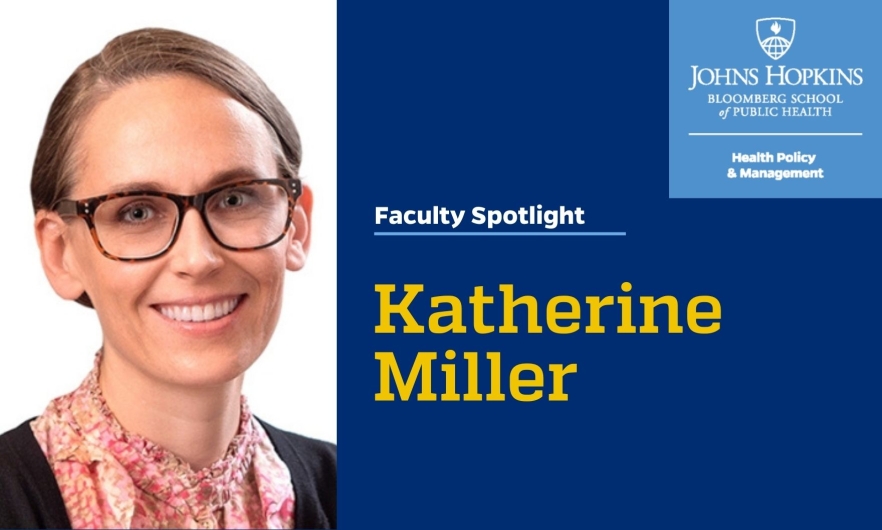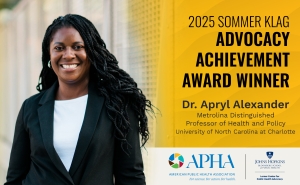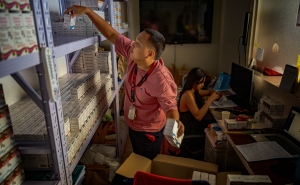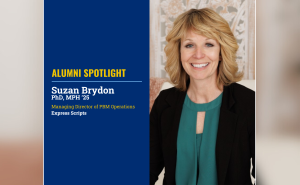The Hidden Costs of Caregiving: Katherine Miller’s Research and Impact

Katherine Miller, PhD, MSPH, always knew she was destined for a career that made a significant difference. Sitting in her office, surrounded by stacks of research papers, she reflected on the journey that brought her here. An assistant professor and health services researcher with a focus on long-term care and caregiving, her path was direct but full of complexities.
Miller’s academic journey began with a degree in sociology which was the foundation for her research approach. However, it wasn’t until she started collaborating with economists that she began to see the profound impact of economic policies on health outcomes. This interdisciplinary perspective became a hallmark of her work.
Her current research focuses on understanding how health and labor policies affect the long-term care workforce, particularly caregivers. She explores both paid and unpaid caregivers, delving into how these policies impact their outcomes and the quality of care they provide. This, in turn, affects patient outcomes, creating a complex web of interdependencies that Miller finds endlessly fascinating.
One of Miller’s most significant research projects involves studying family caregivers across their lifespan. Traditionally, caregiving research has focused on older adults and the family members who care for them. Miller, however, is particularly interested in younger caregivers. Her work with the Veterans Affairs (VA) also focuses on a demographic often overlooked: spouses in their 30s and 40s providing care to their partners. This group faces unique challenges and long-term consequences, and Miller is determined to shed light on their experiences.
Miller’s research often leads to surprising revelations. Her most recently published research on youth caregivers, for instance, revealed that caregiving is more prevalent among young people than previously thought. The educational outcomes for these young caregivers are significantly impacted, underscoring the importance of supporting this often-invisible group.
Collaboration is a cornerstone of Miller’s work. She is deeply involved with the VA Caregiver Support Program Partnered Evaluation Center, which works closely with operational partners to ascertain the value of VA’s caregiver support services for Veterans, caregivers, and the VA Health Care System by leveraging rich data sources and using multiple and mixed-methods approaches. Miller finds this aspect of her work incredibly rewarding, as it bridges the gap between research and real-world application.
Another collaborative project with the Milken Institute’s Center on the Future of Aging focuses on how employers can better support working caregivers. This research aims to develop equitable policies that accommodate the needs of caregivers without compromising their career prospects. The project, funded by the Hopkins Business of Health Initiative, examines the efficacy of flexible work hours and remote work options, striving to create solutions that benefit all workers.
According to Miller, one of the most rewarding aspects of her work is seeing the tangible impact of her research. Whether through publishing papers or communicating findings to policymakers, knowing that her research makes a difference keeps her motivated.
For example, she helped design a data collection system with collaborative partners in the VA. Five years later, she is seeing the fruits of her labor by using the dataset to provide operational insights about support for caregivers to improve well-being.
For current graduate students and those just starting in the field, Miller has simple but profound advice, “Careers are long, and your first job doesn’t have to be your last. Stay passionate, and things will fall into place.” She emphasizes the importance of finding joy in one’s work.
As to the future of her research and the field of caregiving, Miller remains cautiously optimistic, believing that increased policy attention could lead to significant improvements. She hopes that her research will contribute to this progress, helping to create a more supportive environment for caregivers and those they care for.
From a curious undergraduate to a leading researcher in her field, she followed her interests and made a meaningful impact on countless lives. As she looks to the future, she knows there is still much work to be done, but she is ready and eager to rise to the challenge.





